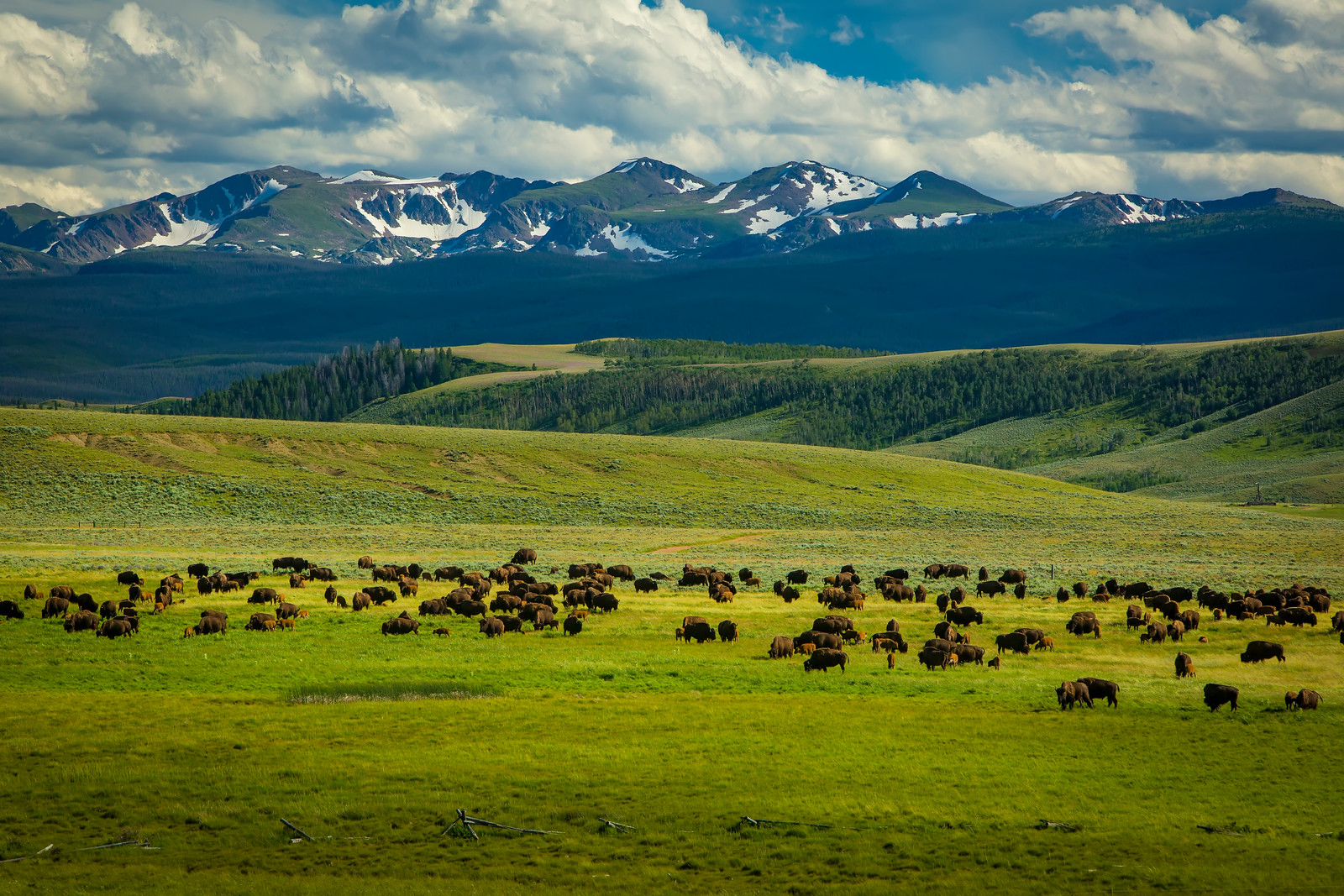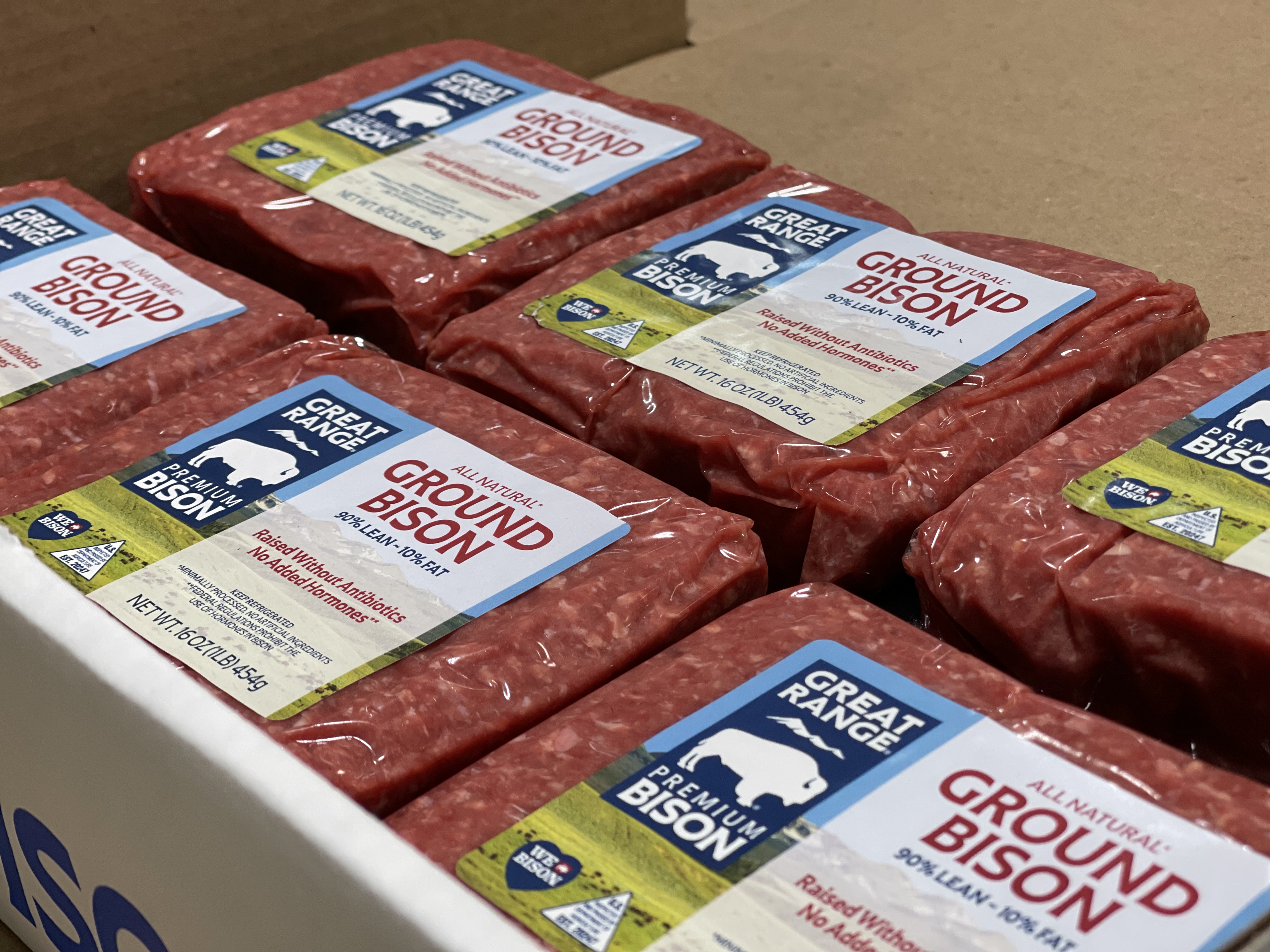
Prior to obtaining Federal approval, MPSC researchers focused on university and lab R&D to answer critical scientific and regulatory questions. In 1995, some of this research was underway at Kansas State University when a tall, lanky visitor wearing a vest and black cowboy hat showed up at the meat lab asking insightful questions about how Rinse & Chill could be of benefit in his bison meat business. This visitor was Bob Dineen, accompanied by the owner of what was to become MPSC’s first USDA-inspected meat plant client, and a relationship soon blossomed.
Bob shared the fascinating yet tragic history of North American bison, highlighting their substantial ecological value and discussing the challenges associated with producing high-quality bison meat products – such as shelf life, consistent palatability, and economic viability. In 1986, Bob founded his company, Rocky Mountain Natural Meats, as a simple “back of the truck” operation driven by his passion to sustain the American bison population. After learning about the benefits of Rinse & Chill, Bob quickly recognized its potential to improve tenderness and palatability of bison, as well as deliver better yields to his producers, thereby encouraging further herd growth. Today, given the importance of sustainability, the fit with Rinse & Chill technology seems obvious, although we didn’t talk about sustainability as a goal back in 1995.

Rocky Mountain Natural Meats is now a key player in the bison industry and a company that represents the confluence of agriculture, sustainability, and conservation. As an MPSC customer for over 25 years, Rocky Mountain Natural Meats has used Rinse & Chill for all bison processed since 2000, and we’re proud of the ways our technology has contributed to their growth and success. With an unwavering commitment to quality and safety, Rocky Mountain Natural Meats is a respected industry leader that delivers the unique benefits of this “perfect protein” to customers and consumers under the “Great Range Premium Bison” label, which can be found in retailers across the country. Great Range Premium Bison is sourced from small, family-owned ranches that share Bob’s vision and dedication to the stewardship of American bison herds. The close partnerships that Bob has fostered within the bison ranching community ensure ranch-to-table traceability and exceptional product freshness and quality. Together, Rocky Mountain Natural Meats and the bison ranching community are demonstrating their profound respect for bison and helping to protect the important ecological role this keystone species plays in the Great Plains landscape.
Before European settlement, bison roamed North America in large herds with a population estimated to be between 30 and 60 million. Considered a sacred animal by Native American tribes, bison were a critical source of food, clothing, and shelter. For thousands of years, bison shaped the ecosystems of North America by grazing, dispersing seeds, and turning over the soil, helping to maintain the delicate balance of prairie plant species and creating habitat for insects and other animals. Tragically, rampant hunting following European colonization reduced the once vast bison herds to near extinction, with numbers estimated to be fewer than 1,000 by the late 1800s. At that time, seeing that the species was on the brink of extinction, a number of private ranchers took in bison calves and protected herds of their own. Descendants from these herds are alive today and have been introduced into Yellowstone and other national and state parks, as well as zoos and ranches throughout the country. Thanks to the concerted conservation efforts of non-profit organizations, government agencies, tribal groups, ranchers, and businesses, the bison population is now nearly half a million.
Today, the ranching community plays an important role in bison conservation by raising herds in a way that allows bison to be bison, as nature intended. Through regenerative agriculture practices such as rotational grazing and natural breeding processes, bison can roam freely and carry out their instinctive behaviors that support soil health, biodiversity, and resilient ecosystems. Management practices also emphasize and uphold animal welfare, with minimal handling and humane treatment of bison. Furthermore, resource use in bison ranching is optimized and more sustainable due to the fact that the species is naturally adapted to the North American landscape, resulting in healthier grasslands and less intensive grain feeding when compared to cattle. The bison industry, while a piece of the broader conservation story, is helping to restore prairie and grassland habitat while treating animals humanely and providing a healthier red meat option.
To Rocky Mountain Natural Meats, the word sustainable refers to the growth and expansion of bison herds in North America. After nearly 40 years in the bison business, it’s clear that Bob’s founding vision has resulted in a company that proves economic success and environmental conservation are not mutually exclusive, and in fact, are interdependent. As Bob stated, “Just because you’re profitable doesn’t mean you’ll do the right thing, but you can’t do the right thing if you’re not profitable.” In addition to the ecosystem benefits stemming from the bison industry, MPSC’s Rinse & Chill technology contributes to tangible sustainability outcomes for our customers. The extended shelf life resulting from Rinse & Chill allowed Rocky Mountain Natural Meats to extend its “sell by date” from 21 to 28 days, giving retailers more confidence to try this new product, resulting in less food waste at both the retailer and consumer levels. Rinse & Chill also leads to enhanced food safety and greater resource efficiency at the plant level.
At MPSC, we’re proud to contribute to our customers’ economic success and sustainability outcomes. Rocky Mountain Natural Meats has been a valued partner in showcasing how agricultural practices can simultaneously support ecological conservation, economic viability, and meet evolving consumer demands for sustainable products. Their continued growth and success are built on values that benefit consumers, ranchers, animals, and the planet alike, creating a holistic, sustainable model that other industries can aspire to emulate.
